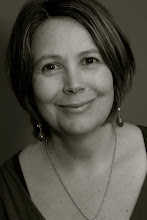Trust
1trust noun \ˈtrəst\
: belief that someone or something is reliable, good, honest, effective, etc.
I think it’s all coming down to this, trust. Either you do or you don’t, either you will or you won’t, or sadly, you can’t. For most of my life I couldn’t trust my parents, they were not evil when I was growing up, they were just not reliable or to be honest, effective. My father was always, always angry. He would swear under his breath on the way to church, and then on the way home again, even Holy Communion did not soften his angry thoughts. My mom was like a resentful child, alway whining, always complaining, always worrying and saying things like she had no one to help her. She was lost. When there was some trouble, with school or friends, she’d get defensive and mean. It was horrible life lessons for negotiation of any sort. If a friend would hurt my feelings, she would more or less tell me they weren’t a good enough friend and I was foolish to, well, trust them. Trust that they might like me, trust that they might care.
And then I met the guy I would marry, I thought I could trust him. I finally let down my guard that someone could love me, and he too, proved to be less than reliable, honest, or effective at creating a safe relationship with me. How was I calling this into my life? He, I believe, was actually looking to me to create safety for him. I think that neither of us knew how to do that for ourselves, and so we could not do that for each other. So, I had to keep figuring this out. I learned to trust God, as many who don’t know how to trust people do. When God let me down, it was a mystery, and when I lost my trust in the whole system of Christian belief I became curious about how we hold faith? What is trust and how does it work? How does it uphold us and create the energy we need to forge good lives?
Over time, I realized I could trust my children, implicitly. It was a beautiful realization. This understanding became confirmed by new research that children are altruistic. This was in direct contrast to my understanding and indoctrination that people are born sinful. My life experiences lead me to look into the history of the beliefs that I thought I held true. Buddhism asserts the wholeness and holiness of each of us. So, it felt a little weird to not be Christian anymore, in this American Christian culture. But I’d rather feel weird than disillusioned and not know why. I believe the Christ prophet did and said some beautiful things. Like Luke 17:21, “Neither shall they say, Lo here! or, lo there! for, behold, the kingdom of God is within you.” How can we not be holy, then, if the kingdom of God is within us?
I came upon this passage, on trust, a couple of weeks ago, and it is sitting with me so well, serving me to remember that, “. . . giving trust is the fuel that makes others trustworthy. . . . How do you hold trust? Do you begin by trusting someone absolutely, or do you wait, expecting that your trust must be earned first by specific deeds? Realize that your approach and expectations have enormous power over the outcome.” (From: Your Authentic Self: Be Yourself at Work, by Ric Giardina.)
It affirms that what we expect, we will look for, it affirms that we need to offer a place of trust for someone to be trustworthy. It means that we need to also be able to trust ourselves in how far we will put ourselves at risk to trust someone else. First and foremost trusting ourselves. Trusting sometimes means saying no, having faith that we will have what we need, and that we are deserving of all good things. For me evidence of this trust is not so much in what I can’t see, but in what I can see. The fact that the earth give us spring each year, that people continue to love and support each other, the fact that our food (if not money) does indeed just grow on trees, and in the ground, and from the ground. And that when our bellies are full, we can look up and gaze upon the stars. I trust that life is good.

No comments:
Post a Comment